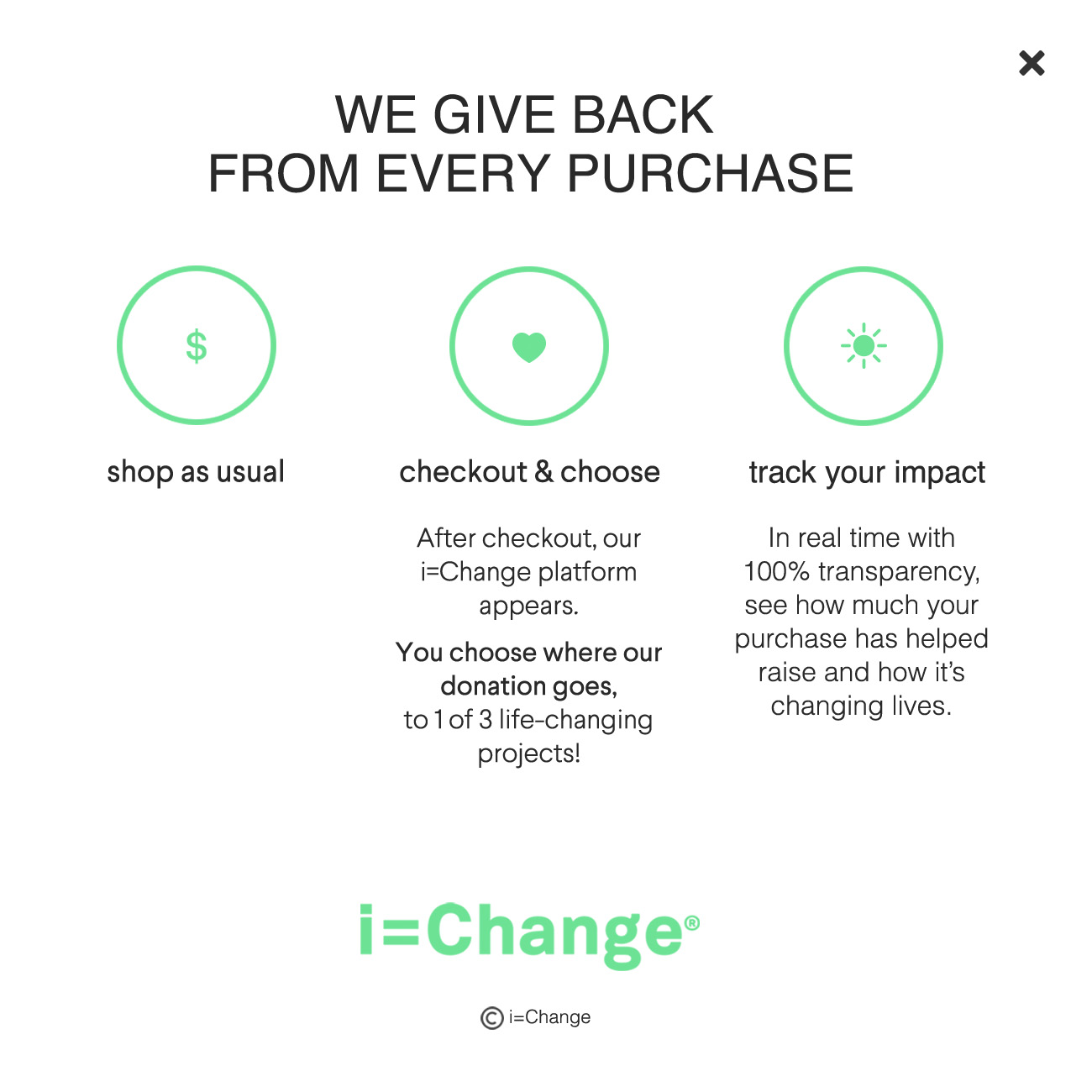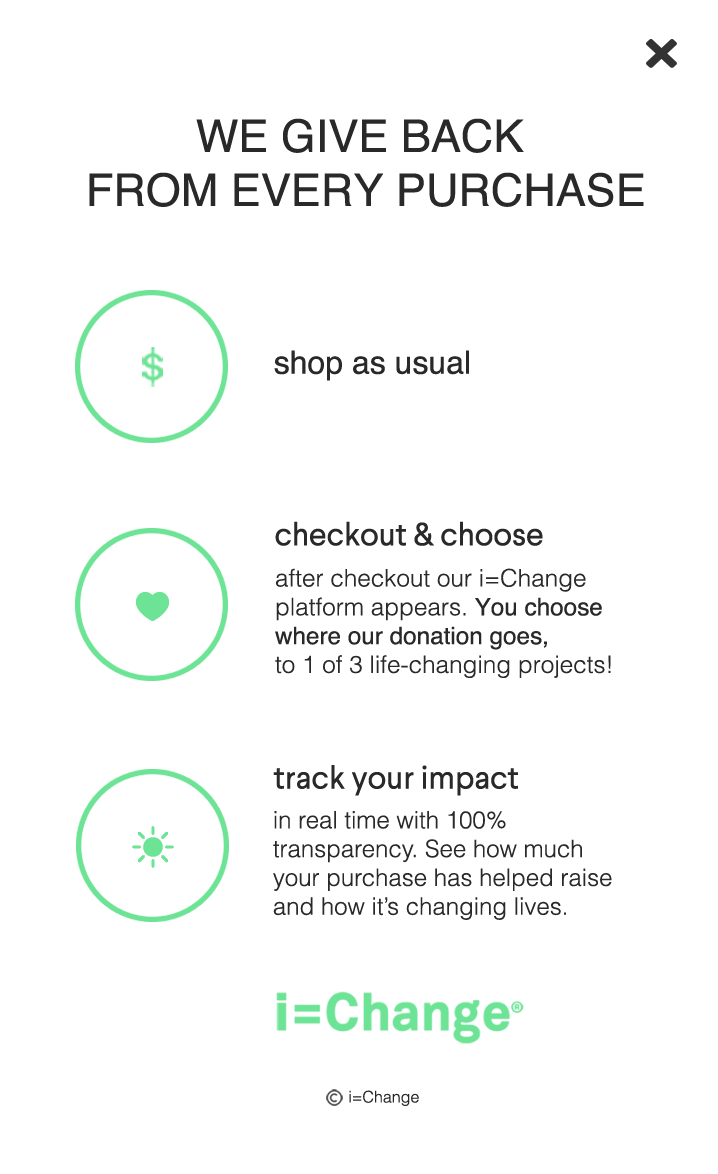Wüin Wayuu Mochila Bag
Pay in 4 interest-free installments of $67.00 by  ⓘ
ⓘ
Product Description
There is a saying amongst the Wayuu tribes of Columbia, “To be a woman is to know how to weave.” The skill of weaving is highly respected within their matriarchal culture and is a symbol of creativity, wisdom, and status.
Behold the mochila bag - delicately and painstakingly handwoven by the women of the Wayuu. These artful accessories tell stitched stories of each maker. Based on traditional weaving techniques passed down for generations, each maker literally weaves her own experiences, thoughts, stories, and dreams into the bag as iconic design elements.
No two bags are alike and no bag is ever truly recreated – each one an artisanal one-of-a-kind piece. Depending on the crochet design, a single mochila takes up to a month of handwork to make.
Fun Fact: Wüin in Wayuunaiki means water.
Sustainability
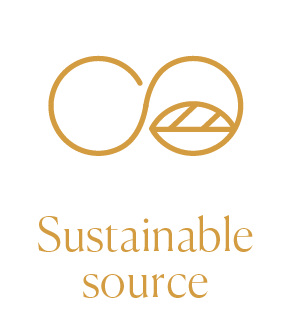
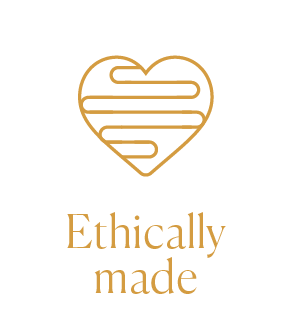
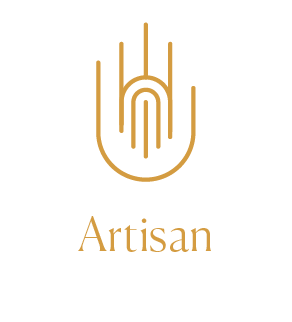
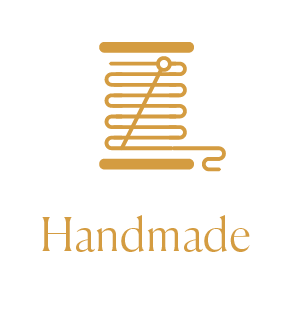
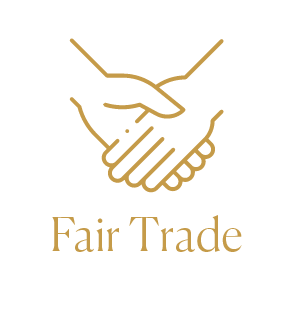
Product Details
Dimension:
Circumference: 10 in
Height: 12 in
Strap's Drop: 42 in
Material: Single Hebra Cotton Thread
All our products are woven by hand (100% handmade), therefore variations in colors, sizes, and patterns may occur.
Made in Colombia

The Social Pillar
Equal Hands partners with artisans and organizations in underserved communities around the world to provide a dignified income and opportunities for talented makers. We also donate a portion of the purchase price to local charitable causes we support.

The Environment Pillar
We are very aware of the negative impact fast fashion and mass production has had on the environment. This awareness has led us to work towards offering the most environmentally sustainable and natural products that we can find.

The Economic Pillar
We strongly believe that empowered individuals hold the ability to break the cycle of poverty and that in particular, women need to be connected to opportunities so that communities can thrive.

Weaving to the Wayuu
There is a saying amongst the Wayuu, “To be a woman is to know how to weave.” The skill of weaving is highly respected within their matriarchal culture and is a symbol of creativity, wisdom and status. Every clan can be distinguished by a particular woven pattern. A Wayúu girl learns the ancient craft from her female relatives during her sacred coming of age ritual that begins with her first menstruation. As the Wayúu are staunch women led tribes, this rite of passage prepares girls for their leadership role as women. During this period, girls live in isolation for long periods (as long as a year) and are taught the customs and beliefs of the Wayúu, how to take care of a home, how to cook, how to mediate conflicts and, importantly, how to weave. The mythological origin of the weaving tradition can be traced back to a wise spider called Walekerü. According to Wayuu legend, Walekeru taught the first Wayúu women how to weave creative patterns into different accessories. During the weaving process, the women use yarn (acrylic thread has replaced natural fibers) to single- or double-thread multi-patterned textiles infused with meaning and symbolism based on their personal life experiences. The patterns are called Kanaasü, which translates roughly to “the art of weaving drawing,” and are a collection of iconographic designs inspired by Wayúu cosmology, legends and the natural landscapes that the Wayuu people live in. Every handcrafted bag is, therefore, unique to the individual weaver who uses Kanaasü to represent elements of her environment, daily life, society and even her transcendent view of the universe. The maker’s work tells a story, describes her dreams and is, essentially, a reflection of her soul. Depending on the crochet design, a single mochila can require up to a month .
Explore









